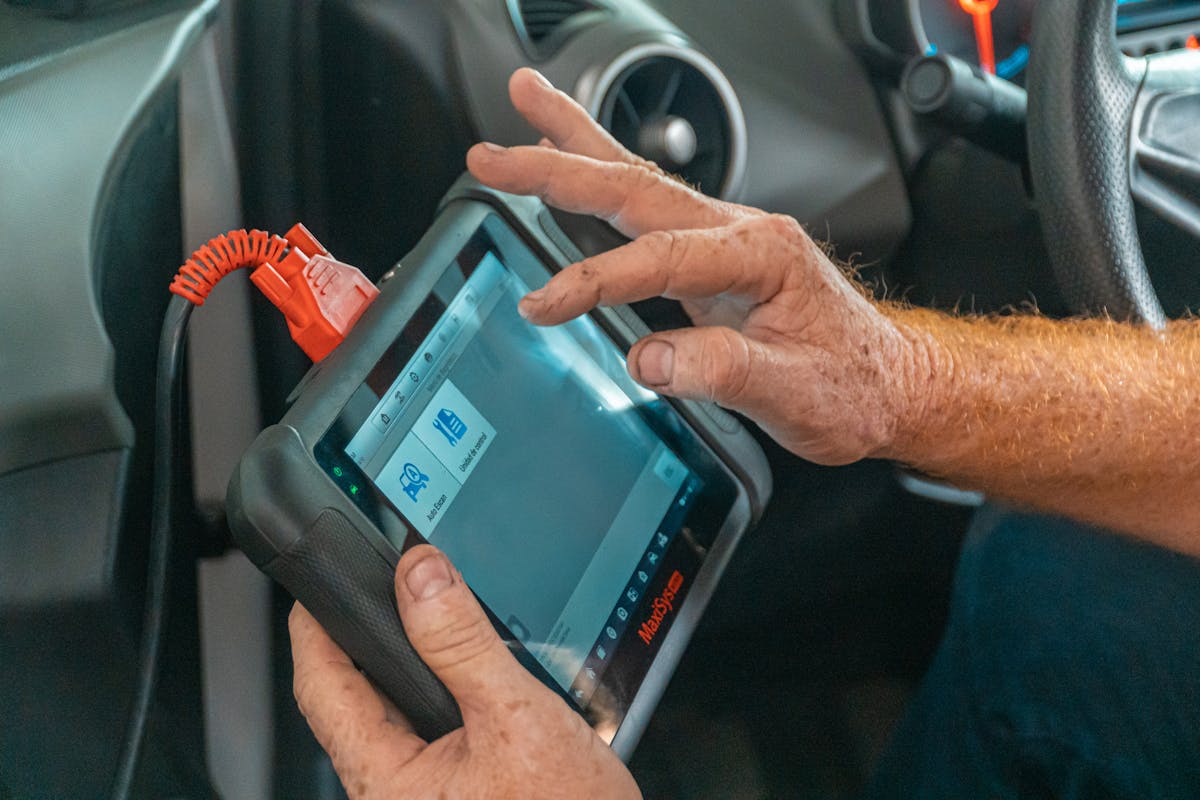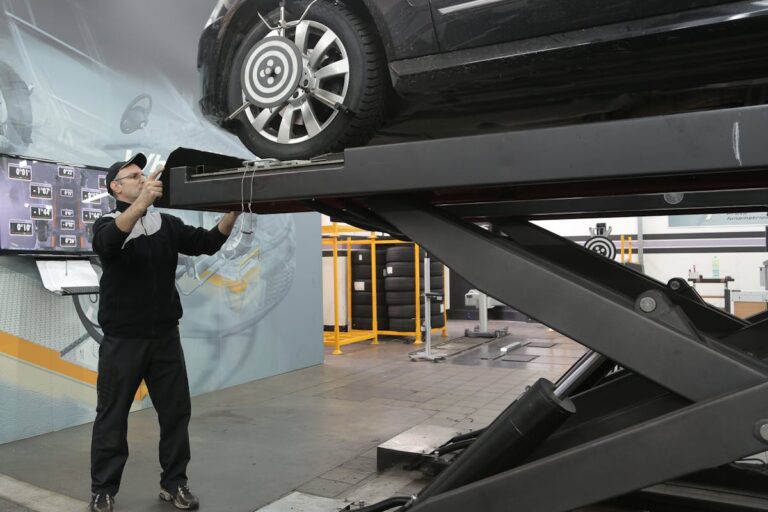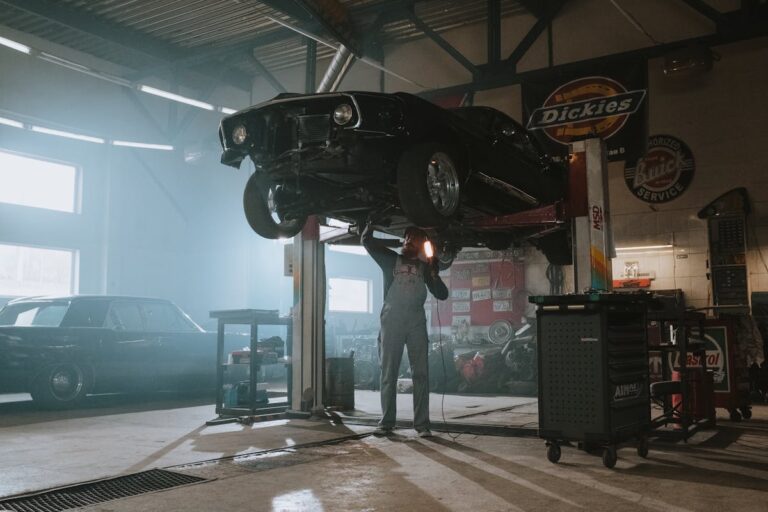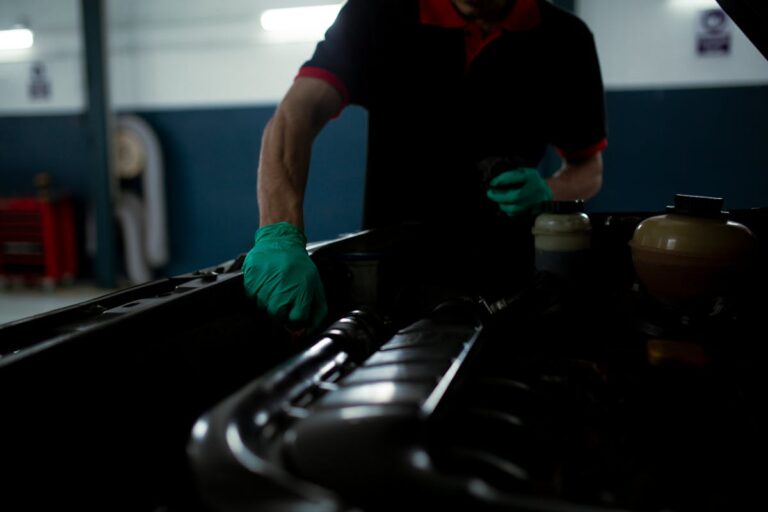Vehicle safety and performance is a matter of great concern for any vehicle owner. Choosing a certified collision repair shop is a critical decision that greatly impacts these aspects. Shops with certification validate their adherence to rigorous industry standards, use of authentic parts, and the expertise of their technicians. This not only guarantees the longevity of repairs but also provides peace of mind through extensive warranties. However, are these the only reasons that make choosing a certified repair shop so essential? Let’s explore this further.
Understanding Collision Repair Certification
The emblem of certification in a collision repair shop is more than a mere decorative plaque on the wall; it stands as a proof of the expertise, reliability, and professional excellence of the establishment. This certification is a confirmation of the shop’s commitment to uphold high industry standards in performing various repair processes.
The certification benefits both the repair shop and its customers in multiple ways. For the repair shop, earning a certification serves as a competitive advantage, demonstrating to potential customers their dedication to quality service. Certified shops have proven their ability to perform complex repair processes with a level of precision and quality that meets or exceeds industry standards.
For customers, choosing a certified collision repair shop brings assurance. It provides the peace of mind that the shop has undergone meticulous inspection and rigorous training to earn its certification. The certification also guarantees that the shop uses modern equipment and follows advanced repair processes, ensuring that their vehicle will be repaired in the best possible manner. Understanding this certification is essential for customers seeking a reliable and professional collision repair service.
Authentic Parts and Certified Repairs
The use of authentic parts in collision repair is paramount in maintaining the integrity and performance of the vehicle post-repair. It is important to understand how these components, guaranteed by certified collision repair shops, contribute to the vehicle’s overall functionality and safety. Additionally, the value of certified repairs guarantees adherence to manufacturer’s specifications, optimizing the longevity and reliability of the repaired vehicle.
Guaranteeing Authentic Auto Parts
Guaranteeing the use of authentic auto parts is a paramount concern in the world of collision repair. Genuine components are integral to maintaining the original performance, safety, and integrity of a vehicle following an accident. When a car is repaired with authentic parts, the owner can rest assured that the vehicle will operate just as it did pre-collision.
The advantages of using authentic parts extend beyond mere performance. These components also come with part warranties, guaranteeing that consumers are protected in the event of a component failure or substandard craftsmanship. Part warranties are essential as they provide a safety net for consumers, reflecting the confidence manufacturers have in the quality and longevity of their parts.
It’s important to understand that not all repair shops prioritize the use of authentic parts. Some may opt for cheaper, aftermarket alternatives, compromising the vehicle’s safety and performance. Consequently, choosing a certified collision repair shop that guarantees the use of genuine components is of utmost importance. This not only guarantees quality repairs but also helps retain the vehicle’s value and provides peace of mind to the vehicle owner.
Value of Certified Repairs
In a vehicle owner’s consideration of post-accident repairs, the value of certified repairs cannot be overstated. These repairs guarantee the use of authentic parts, ensuring the vehicle’s performance, safety, and longevity are not compromised. The significance of this assurance is multifaceted and brings with it several certification benefits.
Not only do certified repairs reinforce the vehicle’s structural integrity, but they also uphold its value. A vehicle repaired with authentic parts maintains its market worth better than one repaired with aftermarket or salvaged parts. Additionally, certified repair shops often provide repair warranties, a proof of their confidence in the quality of their work.
The certification benefits extend to the technicians as well. Certified repair shops employ qualified technicians who have undergone rigorous training and testing. They possess the necessary knowledge and skill to perform complex repairs accurately, ensuring the vehicle is restored to its pre-accident condition.
Expertise of Certified Technicians
Mastering the complex art of vehicle repair, certified technicians bring a wealth of expertise to collision repair shops. These professionals have undergone rigorous training programs, equipping them with the proficiency required to handle the intricate details of auto repair.
Training programs for certified technicians are meticulously designed, ensuring that they are well-versed in the latest repair techniques and technologies, thus enhancing their practical skills and theoretical knowledge. Also, these programs often involve hands-on experience, which bolsters their ability to diagnose and rectify a wide array of vehicle troubles accurately and swiftly.
Technician qualifications form a significant part of the selection process in certified collision repair shops. Certified technicians usually hold credentials from recognized bodies such as the National Institute for Automotive Service Excellence (ASE). This certification is an indication of their competence, as it involves passing extensive examinations and meeting stringent experience requirements.
Ultimately, the expertise of certified technicians reflects in the quality of repair services provided. With their well-rounded training and high-level qualifications, they are adept at restoring vehicles to their pre-accident condition, ensuring customers receive top-tier service. Thus, selecting a certified collision repair shop guarantees access to highly skilled and qualified technicians.

Upholding High Safety Standards
High safety standards are a cornerstone of any reputable certified collision repair shop. This factor is pivotal not only to protect the workers who operate within the shop, but also to guarantee the utmost safety of the customers’ vehicles upon return.
To uphold these high safety standards, the shop must adhere to the stringent safety regulations imposed by industry oversight bodies. These regulations encompass a wide range of issues, from the proper disposal of hazardous materials to the mandatory use of protective equipment. They are designed to minimize risks and promote accident prevention in every aspect of the shop’s operation.
In addition, the continuous training of staff in safety measures is a key component of maintaining these standards. This involves understanding the latest safety practices, learning how to use new equipment correctly, and staying updated on changes in safety regulations.
It’s important to note that a shop’s commitment to safety extends beyond its walls. The repaired vehicles must be safe to drive, meaning that repairs need to be carried out following all safety standards. As a result, choosing a certified collision repair shop is synonymous with guaranteeing the highest safety standards for both the repair process and the final product.
Assurance of Quality Work
A paramount aspect of any certified collision repair shop is the guarantee of quality work. This is an integral component that sets certified repair shops apart from their non-certified counterparts. The quality guarantee provided by these establishments is not merely a marketing strategy, but a commitment to the highest level of service, underpinned by adherence to stringent repair standards.
When selecting a certified collision repair shop, customers can be confident in the knowledge that their vehicle will be restored to its pre-accident condition by trained, skilled professionals. These technicians are well-versed in the latest repair techniques, and they utilize state-of-the-art equipment in a controlled environment to guarantee precision and consistency in the repair process.
Quality assurance also extends to the parts used in repairs. Certified shops commit to using only original manufacturer parts or parts of equivalent quality. This guarantees that your vehicle will not only look as good as new but will perform similarly too.
The Cost-Effectiveness Aspect
While it may initially seem that certified collision repair shops are more expensive than their uncertified counterparts, a closer examination reveals a different story. Certified shops may require a higher upfront cost, but they provide substantial cost savings in the long run.
- Long term investment: Certified shops have highly trained technicians and use quality parts. This leads to durable repairs that last longer, reducing the frequency of future repair needs.
- Insurance relations: Certified shops often have established relationships with insurance companies. This guarantees smooth handling of your claim and might result in lower out-of-pocket expenses.
- Resale value: Properly done repairs maintain the value of your car. This could mean a higher resale value, contributing to the overall cost savings.
Peace of Mind With Certification
Building on the economic advantages of certified collision repair shops, there’s another factor that greatly enhances their appeal – the peace of mind they provide. This peace of mind comes from knowing that your vehicle is in the hands of professionals who have met strict industry standards, ensuring that the quality and safety of the repairs are never compromised.
Certification in a collision repair shop means that the technicians possess the knowledge, skill, and equipment necessary to restore your vehicle to its pre-accident condition. This certification is not easily gained; as a result, it represents a guarantee that the shop takes its responsibility seriously and is committed to maintaining high standards.
Moreover, certified collision repair shops are more likely to offer extensive warranties on their work. This further enhances customer satisfaction as it protects the client from any potential future issues related to the repair.
The peace of mind that comes from choosing a certified repair shop extends beyond the repair process. It also includes the knowledge that you are doing your part to support businesses that prioritize quality, safety, and customer satisfaction. In the long run, this choice not only benefits your vehicle but also contributes to the overall standard of the collision repair industry.
Frequently Asked Questions
What Is the Process to Resolve Disputes With a Certified Collision Repair Shop?
To resolve disputes with a certified collision repair shop, one should first utilize their internal complaint process. If unresolved, consumer rights agencies or legal action may be considered for formal dispute resolution.
How Often Are Certified Collision Repair Shops Required to Undergo Recertification?
Certified collision repair shops typically undergo recertification annually. The recertification frequency guarantees their skills and knowledge remain updated, maximizing the certification benefits such as quality assurance and adherence to industry standards and best practices.
Are Loaner Vehicles Typically Available at Certified Collision Repair Shops?
Yes, loaner vehicles are often available at certified collision repair shops. The specific loaner policies vary by shop, but many provide this service to guarantee customer convenience during the vehicle repair process.
Do Insurance Companies Prefer Repairs From Certified Collision Repair Shops?
Yes, insurance companies generally prefer repairs from certified collision repair shops due to their adherence to industry repair standards, ensuring high-quality workmanship that can potentially prevent future insurance claims.
Can Certified Collision Repair Shops Handle Repairs on Luxury or Exotic Vehicles?
Yes, certified collision repair shops are equipped to handle luxury repairs on both luxury and exotic vehicles. Their certification guarantees they have the specialized training and tools necessary to perform high-quality, precise repairs.


